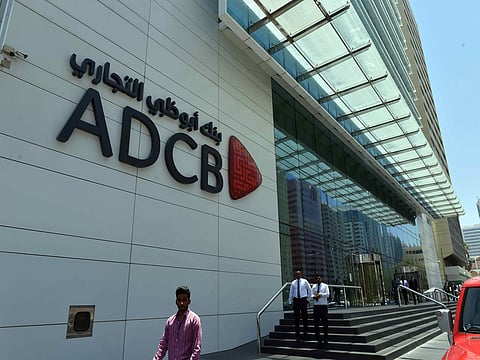Bank mergers only saving grace for UAE bourses and investors
Abu Dhabi index is one of the best regional performers

Dubai: UAE traders have been milking alpha from a few banking stocks listed on UAE bourses as they face a wave of consolidation.
First it was the merger between First Gulf Bank and National Abu Dhabi Bank, which was announced in December 2016, to create UAE’s largest bank, and now merger between Abu Dhabi Commercial Bank and Union National Bank and Al Hilal Bank that may be executed in the first quarter of 2019, and this string of merger news has materially helped stocks listed on the Abu Dhabi Securities Exchange, helping the gauge to be one of the best regional performer.
First Abu Dhabi Bank has gained almost 100 per cent since the merger news came out. Abu Dhabi Commercial Bank has gained 20 per cent since January 1. Union National Bank has gained 23 per cent compared to 10 per cent gains on the Abu Dhabi Securities Exchange. Outside of banks, etisalat has gained 3 per cent since January 1.
Stocks in Dubai didn’t perform on par with their peers in Abu Dhabi. du remained flat so far in the year even as Dubai index has shed more than a fifth of its value. Tabreed shares have remained almost flat.
Divergence
“We have been on a divergent path compared to US markets, which is seeing volatility now. We have been seeing this volatility since 2 years,” said an analyst, who did not wish to be named.
Dubai index has followed a different trajectory after it hit a record high of 5,400 in 2014, and has been on a downward spiral since then. In comparison the Dow Jones index has continued to make new highs, extending its bull run for a decade.
Dubai index has been falling after reaching the top of 5,406, the highest level in 2014 amid immaterial recovery in between. The index traded at 2,469.49 on Thursday. Shift to much liquid Saudi Arabia’s Tadawul index, falling oil prices, mounting geo-politics have been seen as reasons for waning interest in the UAE bourses.
The Tadawul index has slashed 29 per cent of its value after hitting a high of more than 11,000 in 2014. But it may not the time to leave as yet, according to analysts.
“We believe investors should stay invested as there are lot of short and long-term catalysts including the MSCI inclusion and the Saudi budget 2019 which will support capital expenditure and reduce wage bill [a very positive move in right direction]. While the market will continue to face some pressure due to low oil price, there is a good number of idiosyncratic stories which should outperform the market significantly,” Charles-Henry Monchau, Managing Director — CIO & Head of Investment Management at Al Mal Capital said. The Tadawul index has gained 7 per cent so far in the year.
Sign up for the Daily Briefing
Get the latest news and updates straight to your inbox



